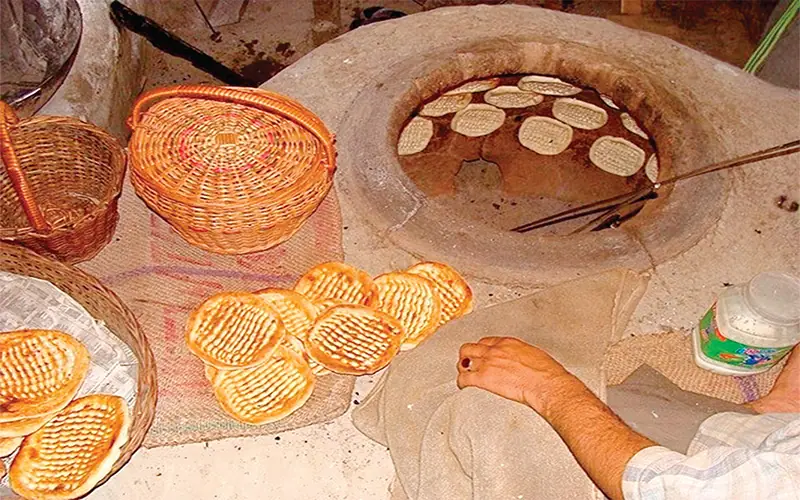The Kandur’s Fire: Where Kashmir Wakes Up Every Morning
Before the sun rises, the tandoor glows — and Kashmir begins another day around the humble kandur.

The Kandur’s Fire: Where Kashmir Wakes Up Every Morning
Before the sun even touches the mountains, a warm orange glow flickers somewhere in every Kashmiri neighbourhood. It’s not the sunrise — it’s the tandoor. And behind it stands a man whose name everyone knows: the Kandur. The Kandur Waan — the local bakery — is more than a shop. It’s where Kashmir wakes up. The air outside smells of wood smoke and fresh dough. Men returning from Fajr prayers stop by to pick up tchot (flatbreads), while sleepy children clutch warm girdas on their way home. Someone always cracks a joke, someone always asks, “kya che khabar?” — “what’s the news?” And suddenly, life begins.
The Kandur Waan is more than a bakery; it’s a newsroom, a café, and a community hall — all rolled into one. Before newspapers arrive and phones light up, this is where the valley’s stories are shared. From politics to weddings, from harvests to heartbreaks — nothing escapes the tandoor’s gossip. If you linger long enough, you’ll hear laughter, debate, and perhaps even a secret or two rising with the steam of fresh bread.
The Kandur himself is a legend in motion — sleeves rolled, face glowing from the tandoor’s fire, moving with a rhythm that’s older than time. He doesn’t need a clock; his hands know the morning by heart. Each bread lands with a soft slap on the clay wall, puffs up like a secret, and drops into a woven basket that smells like home.
Every type of bread tells its own story. The lavasa — thin, crisp, perfect for breakfast with butter and noon chai. The girda — soft, smoky, best eaten warm. The kulcha — that flaky, biscuit-like bread that breaks with a crunch and melts like nostalgia. And of course, the bakarkhani — the royal one, baked for weddings, layered with ghee, and sprinkled with sesame.
In the villages, people still send children to the Kandur Waan carrying brass pots — not just for bread, but for warmth. The baker always slips in an extra tchot for the kid, smiling like he’s known you since forever.
During weddings, the Kandur becomes a hero. He bakes through the night — sweat, smoke, and song — as trays of breads pile high like mountains of joy. When dawn comes, and the aroma fills the air, that’s when everyone knows: the feast has begun.
No matter how much modern life changes — electric ovens, cafés, and all — the Kandur’s tandoor still burns. It’s the smell of community, of warmth, of something that refuses to fade. In a way, it’s Kashmir’s first conversation every morning — silent, smoky, and full of heart.
“When the tandoor glows, the valley wakes.”